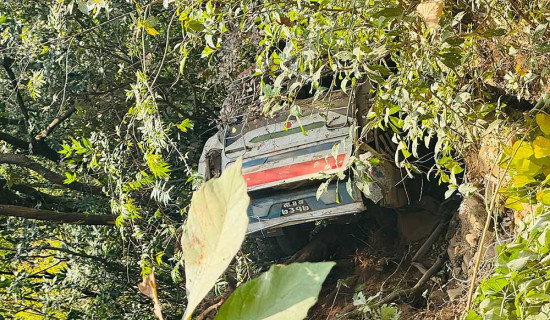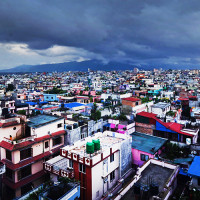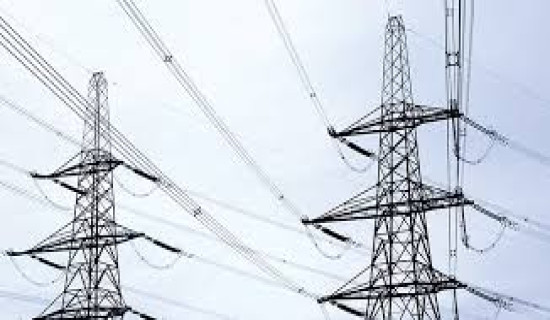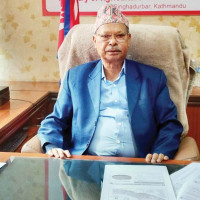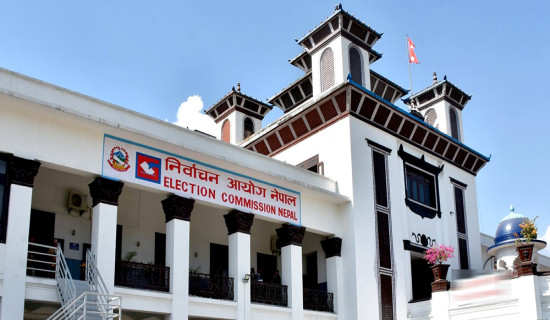- Thursday, 19 February 2026
Tackle LDC Graduation Challenges
Nepal is graduating from the category of LDCs to that of developing countries in November 2026 as the government has fulfilled the required criteria. It is a matter of satisfaction that our country is sloughing off the cocoon of LDCs. For this, the country has made several efforts. In February 2024, the National Planning Commission formulated an LDC Graduation Smooth Transition Strategy with the objective of promoting collaboration across various levels of government, development partners, the private sector and civil society. These goals are also supported by the 16th Five-Year Plan (2024/25-2029/30).
The strategy is in line with the national vision of achieving good governance, social justice and prosperity based on six pillars: macroeconomic stability, trade and investment, economic transformation, productive capacity, climate change and disaster management and social inclusion. These pillars are designed to build an economically robust, socially inclusive and environmentally sustainable Nepal.
Graduation process
As a preparatory mechanism, Nepal is trying to lessen dependence on foreign aid through the International Development Cooperation Policy, which aims at mobilising foreign assistance to facilitate the graduation process and also to achieve the Sustainable Development Goals. The initiative was established in 2019. The country is trying to woo foreign investments from various foreign countries by organising investment summits. The third Investment Summit was convened in April 2024. The country has boosted bilateral ties with such countries as India, China, Japan and the US and improved regional connectivity through multilateral projects. The BBIN (Bangladesh, Bhutan, India and Nepal) road and rail initiative and the trilateral power trade between Nepal, Bangladesh and India are noteworthy endeavours.
Nepal is working to become a middle-income country by 2030 and a high middle-income country by 2043. These goals are ambitious but not unattainable. In the context of our neighbouring countries having achieved great economic success, it would not be appropriate for us to be content with the state of existing development. It may be noted that Bhutan has already graduated to the status of a developing country.
Transition to the status of a developing country will have several implications for Nepal. The country, which was listed among the LDCs back in 1971, has been enjoying LDC-related facilities and privileges. Similarly, the country is utilising foreign assistance and grants to accelerate development. After transition to a developing country, the country will lose the official development assistance from key donors such as India, China and the UK. Although the country will not lose access to concessional loans, access to LDC-specific loans may be lost.
After graduating to a developing country, Nepal will not receive priority and privileges on products and services in the international market according to WTO provisions. However, to retain such privileges, the country is holding negotiations with the European Union, Turkey and other countries for duty-free or quota-free arrangements. It may be noted that subsidies on the export of agro products will not be allowed. Subsidies on the export of non-agro products will be slashed. However, privileges being granted to the service sector will not be affected. So international trade will have a knock. There are over 250,000 workers employed in the garment, carpet and pashmina industries. A reduction in export trade may occur, forcing over 10,500 labourers out of their jobs. A 4.3 per cent reduction in export trade has been projected.
However, the financial assistance from the United Nations Framework Convention on Climate Change to cope with climate change impacts will not be affected. In a similar vein, the facilities from the Agreement on Trade-Related Aspects of Intellectual Property (TRIPS Agreement) will also continue. However, the patents, designs, copyrights and trade secrets of foreign countries being used by Nepali pharmaceutical companies will be affected. The transfer of technology from foreign countries will also have a knock-on effect.
Nepal will have to bear a bigger financial burden in terms of contributions to the United Nations budget. On the other hand, the travel support the country has been receiving for international meetings will be retrenched. Likewise, scholarships for Nepali students may be reduced, preventing some students from pursuing higher studies abroad. However, the transition to a developing country will also throw open several opportunities for Nepal. The country is dependent on foreign countries for its development endeavours. After becoming a developing country, it will have to cope with many challenges. One of the major challenges will be to strive to be self-dependent.
The odyssey from dependence to self-dependence will be a milestone for the country. By expediting agricultural and industrial development, the country can access new international markets through bilateral and regional trade agreements, thus offsetting the loss of LDC-specific and other facilities and privileges. The country can also woo more and more foreign investments by strengthening its negotiating and bargaining power in the international arena.
Global exposure
Further, Nepal can gain global exposure, which can be utilised to enhance the competitiveness of its goods and services in the international market. The country can also diversify its goods and services by mobilising its domestic resources. The country can enhance the quality of its products and services by meeting international standards. Moreover, the country can adopt international technology for use in agricultural, manufacturing, service and other sectors. These sectors can be modernised by international standards. Building and improving infrastructure, part of the development agenda, will benefit such sectors as transportation and tourism.
It follows that the transition to a developing country should be taken as a boon. There will be problems on the way. But if there is political will and greater efforts on the part of the government and its various agencies, such problems can be steered clear of. After all, the goals of becoming a middle-income country and a high middle-income country will also have to be achieved by the set deadline.
(Maharjan has been regularly writing on contemporary issues for this daily since 2000.)



